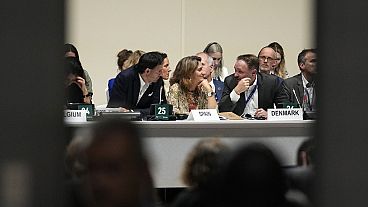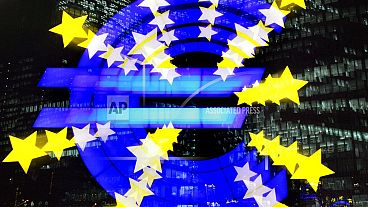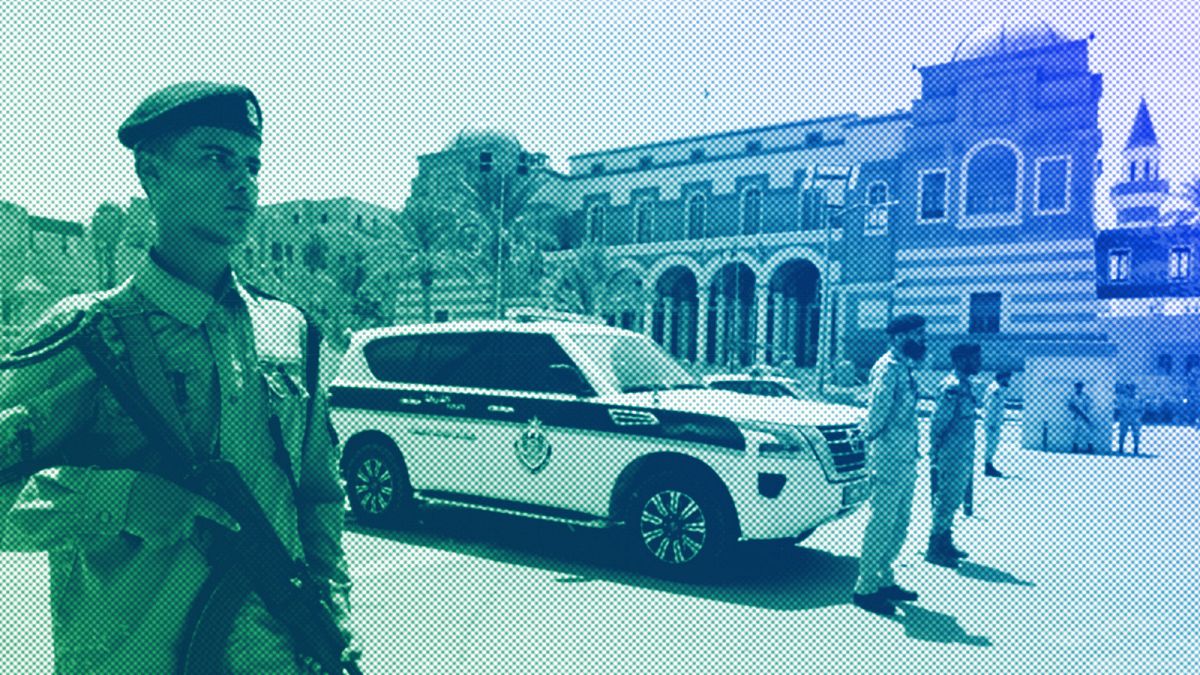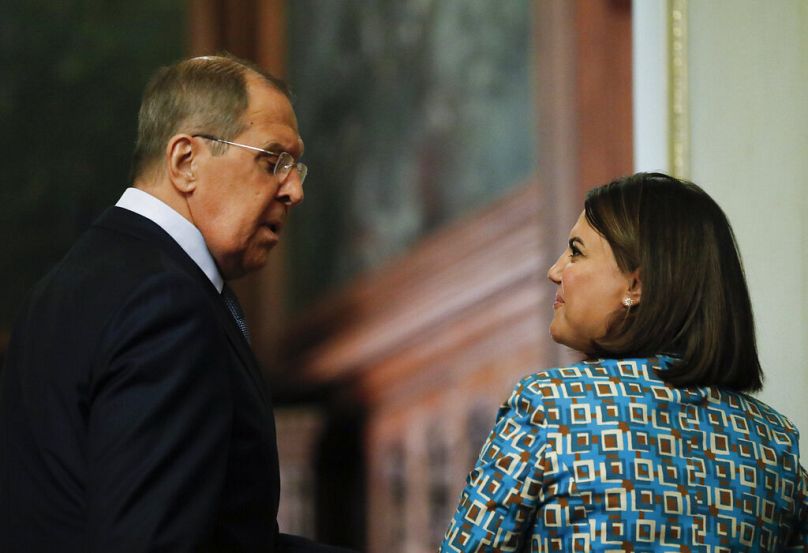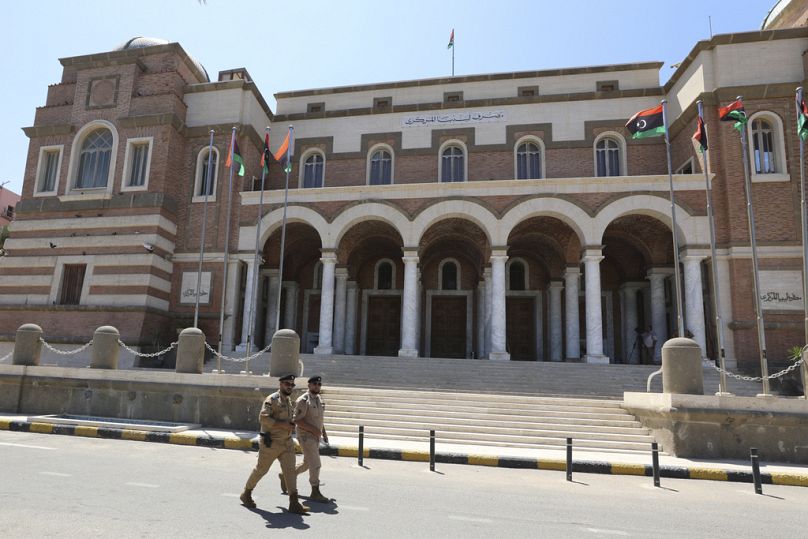Diplomats may be busy stopping other wars in Ukraine and Gaza from growing into monstrous regional conflicts. But if they’re too consumed to take this brief opportunity, they may end up with a third before too long, Tarek Megerisi writes.
Libya's Tripoli-based government's recent clumsy attempt to replace the central bank governor should be a blaring alarm in the central Mediterranean.
It quickly led to a shutdown of Libyan oil exports, Libya’s quarantining from international financial systems, and the cessation of all payments or credit in a state where people are dependent on public-sector salaries and imported goods.
The situation will create a socio-economic crisis for Libya’s long-suffering population, one that could quickly turn violent given the rivalries still tearing the country apart.
But, weirdly enough, it’s also a golden opportunity to stabilise Libya that Western actors are overlooking. Instead of watching the country’s further disintegration from afar, Europeans and the US should leverage this crisis to press for technocratic control of the bank as a prelude to much-needed elections.
What happens in Libya never stays in Libya
From a distance, Libya’s current events might just seem regretful de rigueur, nothing new for a country so deeply knotted in calamity that even former US President Obama could only call it a “shit show”.
But what happens in Libya never ends up staying in Libya. This long-burning conflict has fuelled an insurrection in Mali, helped re-ignite the devastating civil war in Sudan, and almost pushed NATO countries to conflict in the eastern Mediterranean.
Meanwhile, the diffidence of the Western powers that helped Libya’s armed revolution in supporting its subsequent transition created a void that other powers, notably Russia, are also now happily filling.
Since Libya’s last war in 2020, Moscow has transformed Libya into the logistical hub of its Africa operations. Russia has seized military bases a few hundred kilometres from NATO’s Sicilian HQ and turned Libya’s lawless and vast expanse into a smuggling den to break sanctions over Ukraine.
If this crisis drives Libya to war, it would be far messier than the last. Libya’s fragmenting fault lines suggest this would be a constellation of simultaneous conflicts rather than a single-front, two-party war.
The entrenchment of key players like Russia, Turkey and the UAE across Libya and its southern neighbours, alongside heightened sensitivities from Egypt and Algeria, makes the prospect of a messy, overlapping and uncontrollable conflict just as likely internationally as it is domestically.
The chaos this messy internationalised war would bring to what’s already a smuggling hotspot, means any new round of conflict will be toxically destabilising for Africa, the Middle East, the Mediterranean and Europe.
An outcome that will almost certainly advance hostile Russian influence at the expense of flailing Western sway.
Cosplaying generals and politicians
The petty yet powerfully destructive competition between Libya’s collection of cosplaying politicians and generals since 2011 has ultimately been for Libya’s wealth.
This makes the central bank Libya’s most valuable prize and the greatest point of leverage over a political class that has exasperated all previous attempts to progress Libya’s transition with its stubbornness, selfishness and small-mindedness.
But, by bungling the attempt to replace the central bank governor, Libya’s president has created a crisis demanding urgent redress. His appointed governor cannot access key functionality, like the SWIFT payment system.
Meanwhile, the intransigent rivalry between Libya’s political bodies means the parliament, senate, government and presidency are unable to agree on a new mutually acceptable board of governors that could gain the international confidence needed to run the bank.
Their inability to resolve this, the urgent need to prevent a socio-economic crisis, the UN's already mandated mediation role in Libya, and the unique financial oversight role of the US, UK, and France over Libya’s central bank create the perfect recipe for turning this crisis into a gain.
Yet, Western diplomats have thus far done little more than offer concerned statements. Statements Libya’s leaders feel at ease ignoring because experience tells them they won’t be punished, and the prospect of seizing control of Libya’s central bank is too tempting a prize.
Be careful not to end up with a third major war
Instead, the US and key European states should announce a position that, given the current legitimacy crisis, only a technocratic board of governors appointed via a UN process will be considered legitimate to plug Libya’s central bank back into the global financial system.
Given the political crisis, with Libya’s institutions refusing to recognise each other and the absence of a budget, the new board should also be limited to facilitating core state subsistence spending, like salaries and key imports, until new national elections are held that provide for a politically empowered new board. This would also depoliticise the policy, deflating potential claims that it violates Libyan sovereignty.
This would strong-arm Libya’s politicians into accepting the new process. The longer they stall, the more popular pressure will build as the economy breaks down. Russia could try to spoil the situation, but its only real option would be to veto the upcoming renewal of the UN’s support mission, given that it already has a mandate to mediate.
So, in one move, western powers can halt the march to war and imbue a new political process with an urgency and engagement that previous ones lacked.
Sometimes, a simple solution to a complex problem like Libya seems too good to be true.
But with a bit of political capital, Libya can finally be pushed to a much more stabilising place.
Diplomats may be busy stopping other wars in Ukraine and Gaza from growing into monstrous regional conflicts. But if they’re too consumed to take this brief opportunity, then they may well end up with a third before too long.
Tarek Megerisi is a senior policy fellow of the Middle East and North Africa programme at the European Council on Foreign Relations (ECFR).
At Euronews, we believe all views matter. Contact us at view@euronews.com to send pitches or submissions and be part of the conversation.

